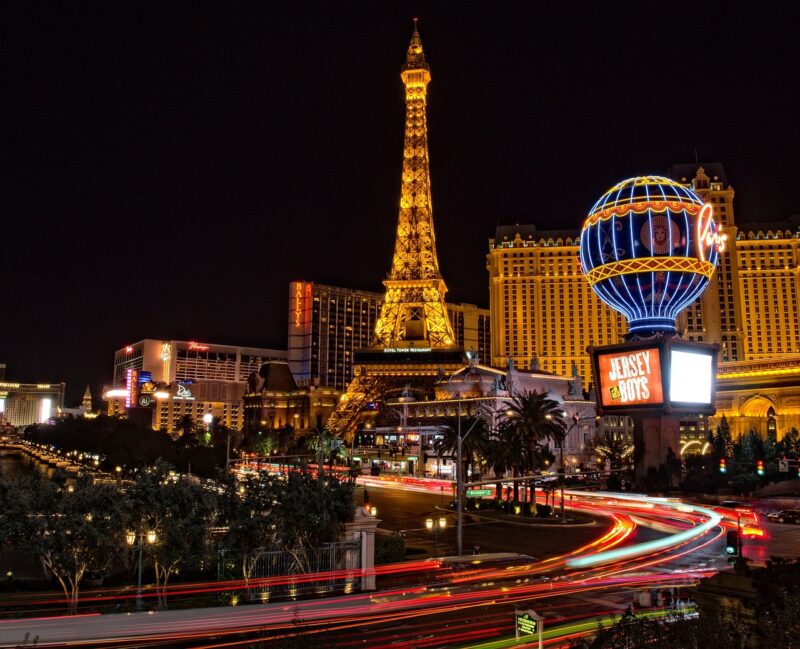The Mafia’s Involvement in the Gambling Scene Across the U.S.
November 15, 2024

The Mafia has long been a shadowy and formidable presence in the history of American gambling. From speakeasies in the Prohibition era to high-stakes casinos today, organized crime syndicates have exploited gambling for profit and power. This article dives deep into the intricate web of the Mafia’s involvement in the gambling scene across the United States, exploring its origins, operations, and the lasting impact on the industry.
1. Understanding the Roots of Mafia Gambling
Gambling has been a part of American culture since its colonial days; however, its association with organized crime took shape during the early 20th century. The onset of Prohibition in 1920 led to a spike in illegal activities, and the Mafia began leveraging gambling as a lucrative means of income. The combination of alcohol prohibition and the illegal gambling business gave rise to underground casinos and betting operations.
Infamous figures like Lucky Luciano and Meyer Lansky emerged as key players in this underground economy. They created a system where gambling provided a steady revenue stream for the Mafia, which also funded other illicit ventures. With economic desperation caused by the Great Depression, gambling would take off, leading to the establishment of illegal gambling houses, slot machine rackets, and bookmaking operations from coast to coast.
2. The Prohibition Era: A Catalyst for Gambling Expansion
Prohibition not only banned the manufacture and sale of alcohol but also created a vacuum for organized crime syndicates to thrive. As speakeasies opened during the prohibition years, many turned into gambling dens alongside clandestine bars.
Mafia members operated these establishments, where patrons could enjoy a drink while wagering on card games, dice games, and other forms of gambling. Cities like Chicago and New York became epicenters of this underground movement, with the Chicago Outfit and the Genovese family controlling a significant portion of the gambling scene. This laid the groundwork for more severe and overt Mafia involvement in gambling that would span decades.
3. From Illegal to Legal: The Shift Towards Casino Development
After World War II, the gambling landscape in the United States began to transform. Nevada legalized gambling in 1931, which initiated a significant shift in the gambling scene. Las Vegas emerged as the world’s gambling capital, attracting both tourists and organized crime figures who saw an opportunity to legitimize their operations.
The Mob played a critical role in the development of Las Vegas during the 1940s and 1950s. They invested heavily in building and operating some of the most famous casinos, including the Flamingo, which was founded by Bugsy Siegel, a notorious hitman turned casino owner. The influence of organized crime helped secure financing for the lavish properties that defined the Las Vegas Strip.
While some elements of the Mob sought to clean up their image, their connections to various casinos and influence over local politicians remained embedded in the fabric of Las Vegas gambling culture.
4. The Mafia’s Bookmaking Influence
In addition to owning and operating casinos, the Mafia also carved a niche for itself in sports betting and bookmaking. While the legalization of sports betting is relatively recent, illegal sports betting has been a significant source of revenue for organized crime for decades.
The Mafia utilized various methods to operate sports betting rings, including forming networks of illegal bookmakers who took bets from individuals. This system flourished in major cities, often using intimidation and violence to enforce payment on debts. A significant portion of betting activities involved fixed games and insider information, instigating corruption and scandal within professional sports.
5. Government Crackdown: The Struggle to Take Down the Mafia
In the latter half of the 20th century, law enforcement agencies began cracking down on Mafia operations, including their gambling enterprises. High-profile investigations, such as the notorious Commission Case in the 1980s, sought to dismantle organized crime syndicates.
The U.S. government focused on prosecuting gambling-related crimes, leading to the introduction of various statutes and laws aimed at curtailing illicit gambling operations. This created a more challenging environment for the Mob, increasing the risk involved in their criminal enterprises.
Nevertheless, despite the overwhelming efforts of law enforcement, some aspects of organized crime continued to infiltrate legal gambling establishments, creating a never-ending game of cat and mouse.
6. The Legacy of the Mafia in Today’s Gambling Scene
Though the Mob’s overt influence has waned in the face of increased regulation and law enforcement action, its legacy persists in the gambling industry. Today, as states across the U.S. legalize sports betting, the historical connection to organized crime remains a cautionary tale.
Modern casinos must be vigilant to prevent any resurgence of Mafia influence. Many establishments engage in stringent security measures and background checks, seeking transparency in their operations. Public awareness and scrutiny have drastically changed the landscape, ensuring that organized crime’s grip on gambling is significantly weaker than in past decades.
Yet, the myths surrounding the Mafia in gambling culture endure. They are immortalized in movies, television shows, and literature, perpetuating interest in the Mob’s storied history and its impact on American gambling.
Conclusion
The Mafia’s involvement in the U.S. gambling scene is a complex narrative marked by crime, power, and cultural influence. From Prohibition-era speakeasies to modern-day casinos and sports betting, the Mafia has woven its story into the fabric of American entertainment and vice.
As the landscape continues to evolve with emerging technologies and changing regulations, it stands as a testament to the intricate relationship between organized crime and gambling. Understanding this history offers valuable insights into the ongoing challenges faced by the gambling industry and the need for vigilance against illicit influences.
Ultimately, the fascinating saga of the Mafia in American gambling is not just a story of criminals but a reflection of broader societal changes and the perpetual allure of vice in the land of opportunity.







